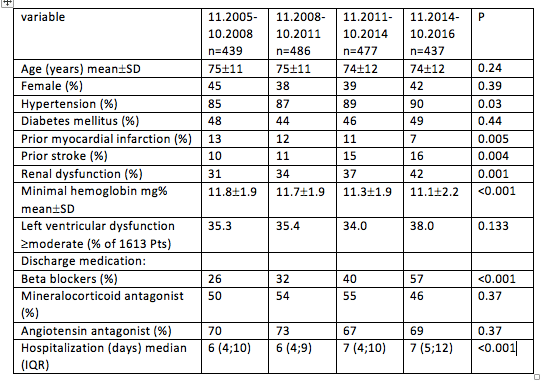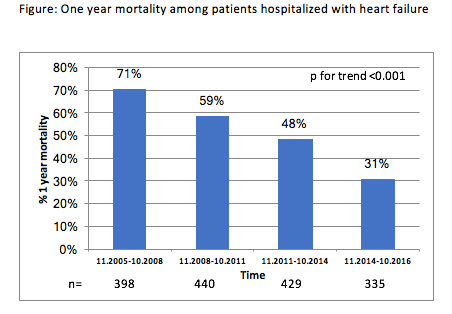
Improved Survival of Patients Hospitalized with Decompensated Heart Failure
Introduction
Patients hospitalized for heart failure (HF) have increased mortality. We investigated trends in outcome of hospitalized HF patients.
Methods
Patients hospitalized in cardiology with first HF decompensation were included and divided to four hospitalization periods: 11.2005-10.2008, 11.2008-10.2011, 11.2011-10.2014 and 11.2014-10.2016. A HF unit including inpatient and outpatient services was established during the last period. Mortality data were acquired from the national registry.
Results
Patient characteristics illustrate increased comorbidities and beta blocker use (Table). In-hospital mortality was 2.5%; 18% had unplanned 1 year re-hospitalizations without difference between periods. There was a significant decrease in 1 year mortality (figure). During the last period, follow-up in the new HF clinic was significantly associated with better survival, HR=0.39 95%CI[0.18-0.87];p=0.021 (adjusted for age, sex, hypertension, diabetes)
Conclusions
Outcomes of HF hospitalization are improving. Establishing a dedicated HF unit and clinic follow-up may have additive benefit.



Powered by Eventact EMS